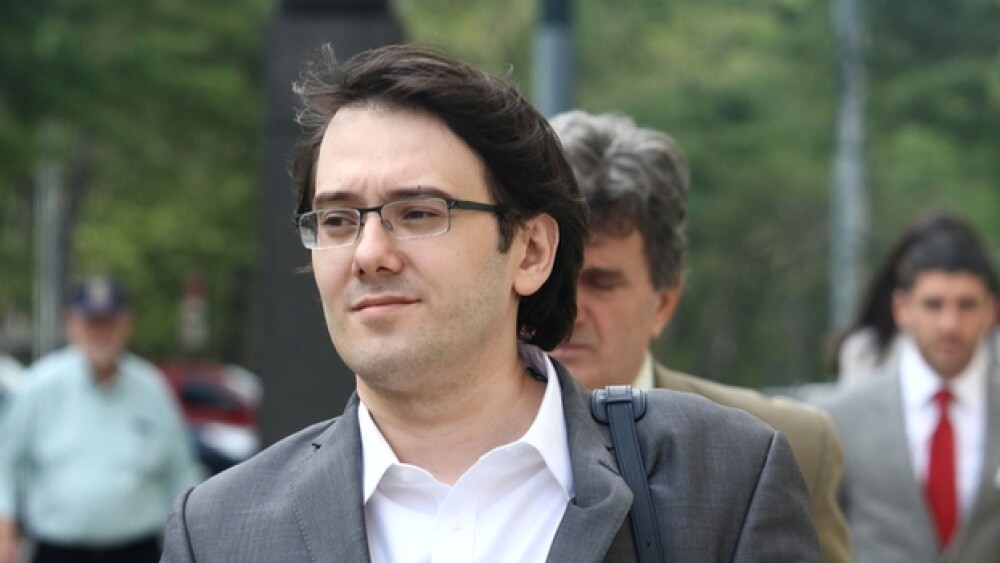Martin Shkreli, commonly known as the “Pharma Bro,” announced Monday he has cofounded Druglike, a Web3 drug discovery software platform, despite a lifetime ban from the pharma industry.
Martin Shkreli, Courtesy JStone/Shutterstock
Martin Shkreli, commonly known as the “Pharma Bro,” announced Monday he has cofounded Druglike, a Web3 drug discovery software platform, despite previously receiving a lifetime ban from the pharma industry.
In February 2022, Martin Shkreli, known as the “Pharma Bro,” received his second lifetime ban from the pharmaceutical industry. In January, he had been banned by U.S. District Court Judge Denise Cotes from future involvement in the pharmaceutical industry.
Then in February, he was given another similar order and also forced to pay a $1.39 million fine. The second verdict was over charges that Shkreli violated securities law between 2009 and 2014 when he ran Retrophin, Inc. And in 2017, he was found guilty of two charges of securities fraud and one charge of conspiracy to commit fraud.
In Tuesday’s announcement, Shkreli stated, “We started Druglike because in our experience, traditional drug discovery software is too difficult and expensive to use. Druglike will remove barriers to early-stage drug discovery, increase innovation and allow a broader group of contributors to share the rewards.”
The company is developing a decentralized computing network to help early-stage discovery biotech. Reportedly, this will be web-based and completely free to use.
This does appear to be quite different from his previous business ventures, which included his increasing the price of HIV drug Daraprim by approximately 5,000% when he was chief executive officer of Turing Pharma. The Druglike announcement does stress that it is “not engaged in pharmaceutical research or drug development,” although whether the judges who implemented the lifetime bans will agree with that remains to be seen.
Shkreli, in an interview with Daily Mail, said he ultimately plans to challenge the bans and get back into the pharmaceutical business. He also stated that Druglike is his “revenge” on the industry by removing barriers to things like target identification, drug design, and virtual screening. “It’d be fascinating if the next big medicine came out because like 20,000 computers of volunteers made it instead of like, Merck,” he said in the interview.
It’s not clear how Shkreli or Druglike intends to generate revenue. The platform uses “proof-of-optimization,” a novel blockchain consensus mechanism that solves computational chemistry problems at a cost that is competitive with standard on-premises environments and cloud computing. Contributors to this web of computing solutions can run “both solver and validator nodes powering industrial-scale virtual screening campaigns in exchange for $MSI, the platform’s official token.” In order words, it’s a type of cryptocurrency. And the computing power would be crowdsourced via the web application.
Shkreli said, “For the first time, any computer or phone with access to the web might be responsible and rewarded for discovering the next breakthrough medicine. We will disrupt the economics of the drug business by allowing a wide pool of innovators and contributors, rather than only pharmaceutical giants, to profit from drug discovery.”
Shkreli’s involvement is certain to raise eyebrows. Gizmodo, for example, wrote, “Okay, so we have a shady ex-pharmaceutical executive known for doing the oppositive of democratizing the costs of medicine joining forces with a digital infrastructure that doesn’t even really exist yet … what could go wrong?”
Shkreli was sentenced to seven years in prison in 2018 and was released on May 19, 2022. He is currently residing in a halfway house in Brooklyn under the oversight of the Federal Bureau of Prisons until September 14.
While in prison, he tweeted that he used a cryptocurrency exchange, claiming that crypto entities would eventually become “bigger than the banking behemoths.”
Attorneys for Shkreli told NPR that he had completed “all programs that allowed for his prison sentence to be shortened.” The statement from his attorneys read, “While in the halfway house, I have encouraged Mr. Shkreli to make no further statement, nor will he or I have any additional comments at this time.”





